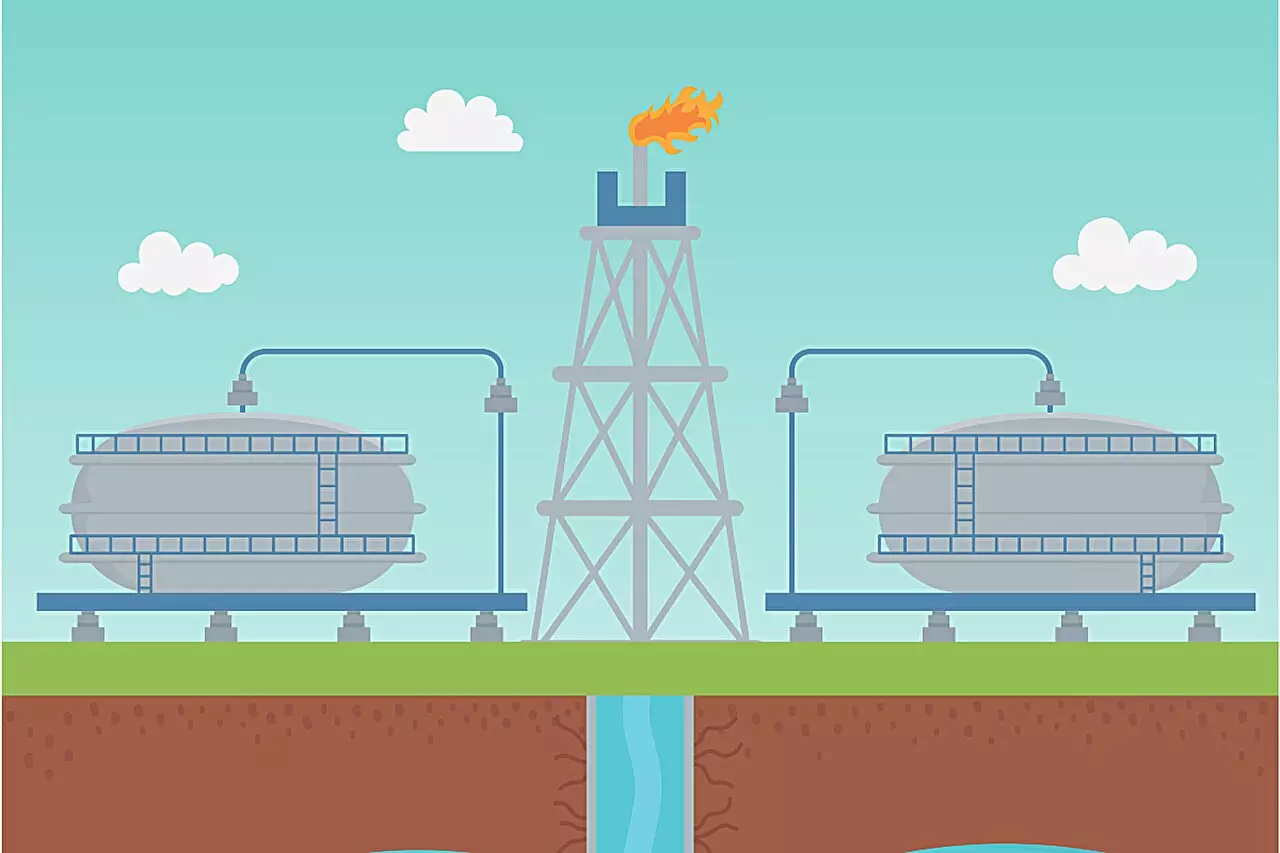Hydraulic fracturing, commonly known as fracking, has stirred fierce debates across the United States. While discussions often gravitate toward its broader implications for climate change and economic ramifications, a recent study led by researchers from Binghamton University and the University of Nevada, Las Vegas, delves into the nuanced and personal struggles faced by individual landowners. Their paper, “Assessing How Energy Companies Negotiate With 31 Landowners When Obtaining Land for Hydraulic Fracturing,” underscored how energy companies exert significant pressure on landowners and navigate legal frameworks to secure drilling rights, often disregarding landowners’ preferences.
The significance of fracking lies in its ability to unlock fossil fuel reservoirs that are often located beneath private lands. For energy companies to initiate drilling operations, they must first broker agreements with landowners, who are frequently hesitant due to concerns over health risks, economic exploitation, or varying expectations regarding compensation. Despite these concerns, firms can apply pressure tactics and legal strategies, resulting in a myriad of outcomes that can significantly affect landowners’ rights and livelihoods.
The study’s lead author, Benjamin Farrer, emphasizes a critical but oft-overlooked dimension of the debate—pressed negotiations. Researchers analyzed how energy companies interact with landowners, revealing a pattern of persistent and personalized pressure. Companies deploy a variety of strategies, from phone calls to in-person visits, aimed at convincing property owners to relinquish their rights to the mineral resources under their land.
One testimonial from the study highlights a landowner resisting a lease. Despite her refusal, the landman’s approach escalated to such an extent that he resorted to speaking with her neighbors to exert further pressure. This exemplifies the lengths to which companies will go to override landowners’ decisions. Furthermore, in an extreme case, a landman continued to pressure a landowner recovering from radiation treatment, effectively disregarding her circumstances. Such tactics demonstrate an unsettling dynamic where landowners, often vulnerable or unable to assert their rights, face relentless encroachments on their autonomy.
A cornerstone of the law that facilitates these pressures is known as compulsory unitization, prevalent in many oil and gas-producing states. This legal provision allows energy companies to compel landowners to participate in drilling projects if a significant portion of land in an area has already agreed to a lease. For instance, in a scenario where 650 out of 1,000 acres are leased, landowners of the remaining 350 acres can be legally coerced into leasing their property.
Robert Holahan, an associate professor involved in the study, explains how compulsory unitization has evolved. Initially, this law was designed to prevent economic holdouts from jeopardizing a project. However, it is increasingly leveraged to enforce compliance from landowners who are unwilling to engage voluntarily. In the context of horizontal drilling, which spans multiple properties, this mechanism becomes particularly problematic, overshadowing the rights of reluctant mineral owners.
In their analysis, the research team examined applications for compulsory unitization from Ohio’s Department of Natural Resources between January 2014 and April 2021, a period marked by a fracking boom. This investigation revealed that many negotiations ended with the enforcement of leasing rights rather than genuine consent, raising important questions about the ethics of such legal frameworks.
Beyond individual landowners, the implications of these findings resonate throughout communities hosting fracking activities. The pressure tactics and legal compulsion not only compromise the rights of property owners but also jeopardize local health and environmental sustainability. These dynamics underscore a pressing need for policymakers to take into account the experiences and rights of those living closest to fracking sites.
The study also considered public sentiment towards drilling and alternative energy sources. By surveying 3,000 residents in the Twin Tiers region of New York and Pennsylvania about their attitudes towards green energy versus conventional energy, researchers aimed to uncover broader public perceptions that could influence future energy policy and development.
As the controversy surrounding fracking persists, it becomes increasingly vital to highlight the voices of individual landowners. Efforts must be made to ensure that legal frameworks protect their rights, and that their experiences inform policies guiding future energy development. Only through recognizing the humanity behind these regulatory discussions can a more equitable approach to energy production be achieved.

